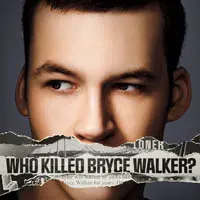13 Reasons Why Season 3 is a ridiculous, maddening, overlong example of Peak TV-era excess
-

In Season 3, the Netflix teen series "goes to town on tackling hot-button topics," says Jen Chaney. "By taking on so much, the show does itself — and each of the issues it tries to address — a disservice. It also does a disservice to its actors, who are trying their damnedest to find authenticity in moments that often seem anything but authentic." Chaney adds: "The Bryce through line allows the 13 Reasons Why showrunner, Pulitzer Prize–winner Brian Yorkey, and his writers to double down on what has been a theme in 13 Reasons all along: the idea that everyone is fighting a hard battle that may not be apparent on the surface. In season three, those battles affect multiple characters and involve almost every social issue that currently may affect the youth (and non-youth) of America: bullying, sexual assault, suicide, abortion, steroid abuse, the opioid crisis, gun violence, marginalization based on sexual identity, and the crackdown on illegal immigration. Tossing all of these serious matters into the same slow-cooking, melodramatic stew degrades the importance of each one. It also often turns what is clearly aiming to be an unflinching portrait of contemporary teen life into an unintentional comedy. To be more blunt: What I’m really saying is that the third season of 13 Reasons Why is a ridiculous, maddening, overlong example of Peak TV-era television that doesn’t know how to quit when it’s ahead." Chaney also found the number of episodes annoying. There is no reason to have 13 episodes in Season 3, says Chaney, especially when many are bloated. As a result, she says, "every moment just draaaaags. The whole time I wondered if I might have been less annoyed with some of the tics and flaws in this show if the storytelling was at least more concise." Chaney adds: "Even the titles are freaking long," with one episode titled: “In High School, Even on a Good Day, It’s Hard to Tell Who’s on Your Side."
ALSO:
- 13 Reasons Why proves it's creatively bankrupt by redeeming the image of a rapist: "Brian Yorkey’s still-very-bad Netflix original has nothing substantial to say; despite the many controversial topics touched upon, these 13 new episodes are only interested in depicting trauma for the sake of drama," says Ben Travers, "and no one seems to care how far they have to re-e-e-e-ach to justify talking about abuse, rape, murder, immigration, homophobia, 'locker room talk,' drug use, and so many more intense, real-world teen experiences. The sheer quantity is preposterous, undercutting any actual impact the season could carry, but the central focus on humanizing a rapist is beyond reason."
- Why redeem a rapist?: "Unearned redemption, or maybe it’s unearned justification, is a motif of the season," says Kevin Fallon, adding: "I’m not sure what complex moral issues the season thought it was exploring when it comes to good vs. bad, abusers, survivors, and the connection between rape culture and jock culture. But in the end the series becomes, basically, How to (Barely) Get Away With Murder, especially when we see in the final moments that more evidence is going to surface that will ensure that these kids are not going to get off that easily."
- The young people who watch this show deserve better: "The team behind 13 Reason Why may have (mostly) left Hannah Baker in the past, but what they offered in her wake is similarly disconcerting," says Maria Sherman. "If this is meant to be entertaining and instructive, something is getting lost in translation. Beginning and ending each episode with a warning about the sensitive topics discussed on the program and a link to a site that provides access to various crisis networks is not the same thing as handling sensitive topics with, well, sensitivity. It is the bare minimum."
- The best that could be said of Season 3 is that it's less offensive and irresponsible: "It's a bloated season, often treading water and creating cumbersome subplots to pad 13 hour-long episodes," says Proma Khosla. "And it's an emotional rollercoaster – not only because of heavy topics the show loves to tackle, but because it continues to struggle with how exactly to approach them, often to mixed effect."
- Anne Winters defends Ani following backlash
- Brenda Strong says writers really paid attention to Nora after she was previously an enigma
- Here are seven burning questions for the fourth and final season
- Justin Prentice says whether Bryce Walker deserved to die should be ambiguous: "Viewers should walk away with different thoughts and that will be exciting to see; the dialogue that sparks from it because everyone is going to have their own opinion," he says. "Death is always a harsh punishment, especially when we got to see a glimmer of Bryce starting to change. But then one could argue that he has caused irreparable damage to so many people. We’ll leave that up to the viewers to walk away with what they walk away with."
TOPICS: 13 Reasons Why, Netflix, Anne Winters, Brenda Strong, Brian Yorkey, Justin Prentice, Teen TV
More 13 Reasons Why on Primetimer:
